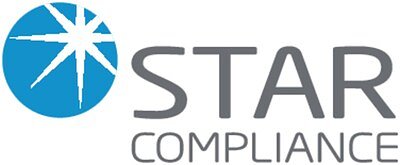
UAE Firms Prioritize Compliance Training, Lag in AI Adoption: New Study Reveals Trends
A new StarCompliance study shows UAE financial firms are heavily investing in employee training to meet rising regulatory demands, but remain hesitant to adopt AI-powered compliance solutions. Is the region falling behind?
UAE Firms Prioritize Compliance Training, Lag in AI Adoption: New Study Reveals Trends
By Carol Moore, AI in Healthcare: Innovation & Implementation
Dubai, UAE – November 4, 2025 – As regulatory pressures mount in the UAE’s financial sector, firms are doubling down on employee training and bolstering existing compliance frameworks. However, a new study from StarCompliance reveals a significant gap in the adoption of artificial intelligence (AI) to streamline these efforts – a trend that could leave the region vulnerable to increasingly sophisticated financial crimes.
The study, released this week, found that a vast majority of UAE-based financial institutions are prioritizing investment in human capital and procedural enhancements to meet stringent new regulations surrounding anti-money laundering (AML), data privacy, and corporate governance. While this proactive approach is commendable, industry experts suggest a reliance on manual processes alone may prove unsustainable in the long run.
“We're seeing a clear emphasis on 'boots on the ground' – firms are understandably keen to ensure their teams are fully equipped to navigate the evolving regulatory landscape,” explains a senior compliance officer at a regional bank, who requested anonymity. “However, the sheer volume of transactions and data we're dealing with is becoming overwhelming. We need to explore ways to automate some of these tasks, and AI seems like the logical next step.”
Training Takes Center Stage
The study found that over 80% of respondents indicated a significant increase in compliance training budgets over the past year. This investment reflects a growing recognition of the need to upskill employees to identify and mitigate emerging risks. Areas of particular focus include fraud detection, regulatory reporting, and data security.
“The UAE is actively positioning itself as a global financial hub, and that requires a robust and credible compliance framework,” says an industry analyst specializing in FinTech in the Middle East. “Firms understand that investing in their people is crucial to maintaining this reputation. However, relying solely on human oversight is becoming increasingly expensive and inefficient.”
AI Adoption: A Hesitant Embrace
Despite the clear benefits of AI in automating repetitive tasks, improving accuracy, and enhancing risk detection, adoption rates remain surprisingly low in the UAE. The StarCompliance study estimates that only 10-20% of financial institutions in the region are currently utilizing AI-powered compliance solutions – a figure significantly lower than the global average of 30-40%.
Several factors contribute to this hesitancy. Data privacy concerns are paramount, particularly given the UAE’s stringent data residency laws. Many firms are hesitant to upload sensitive data to cloud-based AI platforms, fearing potential breaches or non-compliance with local regulations. Another barrier is the lack of local AI expertise. Finding qualified data scientists and machine learning engineers remains a challenge.
“There's a perception that AI is a ‘black box’ – firms worry about the explainability and transparency of AI algorithms,” explains a regulatory consultant specializing in AML compliance. “They need to be able to demonstrate to regulators that their AI systems are accurate, unbiased, and compliant with all applicable laws.”
The Risk of Falling Behind
The slow pace of AI adoption in the UAE’s financial sector could have significant consequences. As financial crimes become increasingly sophisticated, relying on manual processes alone may not be enough to effectively detect and prevent fraud, money laundering, and other illicit activities.
“The UAE is a prime target for financial criminals due to its strategic location and growing financial hub status,” warns an anonymous source within the Central Bank of the UAE. “If we don't embrace new technologies like AI, we risk falling behind in the fight against financial crime.”
The Path Forward
Experts suggest several steps that UAE financial institutions can take to accelerate AI adoption:
- Prioritize Data Security: Implement robust data encryption and access control measures to protect sensitive information.
- Invest in Local Expertise: Develop training programs to upskill local talent in AI and data science.
- Embrace Single-Tenancy Solutions: Opt for AI platforms that offer single-tenancy hosting to ensure data privacy and compliance.
- Promote Transparency and Explainability: Choose AI systems that provide clear explanations of their decision-making processes.
- Collaboration with Regulators: Work closely with regulatory bodies to ensure that AI systems comply with all applicable laws and regulations.
“The UAE has the potential to become a leader in AI-powered compliance,” says the industry analyst. “But it requires a concerted effort from both the private and public sectors to overcome the challenges and unlock the full potential of this transformative technology.”
The StarCompliance study serves as a wake-up call for UAE financial institutions. While investing in employee training is essential, it’s no longer sufficient. To remain competitive and protect the integrity of the financial system, the UAE must embrace AI and harness its power to fight financial crime and build a more secure future.
